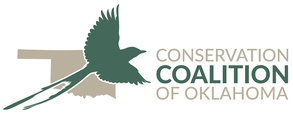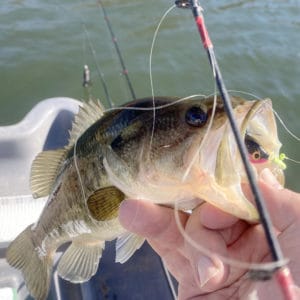Statewide bass fishing, western quail hunting regulations top list of proposalsBy KELLY BOSTIAN
For the CCOF Bass, quail, and trapping are drawing the highest interest on a slate of proposed state hunting and fishing regulation changes. Friday is the deadline to submit public comments in the annual Oklahoma Department of Wildlife Conservation public rulemaking process. The online portal deadline is 4:30 p.m. Friday. Written comments also must have a postmark no later than Jan. 7. Dozens of rule changes, major to minor, are on the docket. Some, like place name changes or clarifications to existing regulations, are simply housekeeping measures. Others impact only certain water bodies or department-run Wildlife Management Areas. People with favorite spots on public lands or waters should scan the proposal list for changes specific to their area. A broad change to most western Oklahoma wildlife management areas would close the quail hunting season two weeks earlier in 2023. Despite generally low or declining populations for several years, this marks the first major change to the quail season in some time. The earlier closure could help quail even though hunting pressure generally is not considered a major factor for quail populations, said Tell Judkins, wildlife department upland game biologist. “New studies show us the survival rate is much higher for quail that have made it through to those later weeks in winter,” he said. “Knowing that and knowing there is a fair amount of hunting pressure on those (wildlife management areas) the last two weeks of the season, where we see a lot of out-of-state license plates, it’s something that could make a difference for the birds.” The season would remain open through Feb. 15 on private lands. Trapping in the closed areas could begin Feb. 1, with the quail seasons closed on Jan. 31, he said. Several changes to trapping regulations reflect 2021 legislation that placed the rules in the Title 800 regulatory process. The state legislature, with changes required through bills filed to changes rules in statute, was unable to keep up with changes to trapping methods and equipment. Regulations were simply out-of-date for trappers, said Jarrod Davis, furbearer biologist with the Wildlife Department. “Most of the changes involve the use of newer types of traps,” he said. New general regulations will allow body-hold traps but only underwater and on private lands, he said. In recognition of increased populations, the trapping limit for river otters would increase from four to six. Both biologists said they hope trappers will take advantage of the earlier quail season closure. Trapping could help predator numbers in the western wildlife management areas. Another most-discussed proposal involves a statewide change to bass fishing regulations. The daily bass limit would remain at 6, but only one fish over 16 inches long could be kept. Currently, bass must be longer than 14 inches to keep in most areas. If anglers keep more small fish, the numbers of larger bass could increase, said Josh Johnston, northeast region fisheries supervisor. Tournament anglers could keep more large fish under a rule that allows bass tournament directors to obtain a special permit. The permit requires directors to release all fish and file a report. Other regulations will open a year-round season for squirrel hunting for falconers; close or change some public-area turkey hunts to drawing permit hunts; change camping rules in certain areas, and create a trophy area on the Lower Mountain Fork River. Trout anglers there could keep only one brown trout, which must be over 30 inches long. The seven-member Oklahoma Conservation Commission will vote on the proposed Title 800 rules at a later date. The changes are considered in the legislative rules process and forwarded to the governor for final approval. The new rules will appear in the state hunting and fishing regulation guide books for 2022-2023. The proposed changes and a link to provide online comments are on the Wildlife Department website at wildlifedepartment.com/public-meeting. Mail written comments to the Oklahoma Department of Wildlife Conservation, RE: Public Comment, P.O. Box 53465, OKC, OK 73152. Kelly Bostian is an independent journalist writing for The Conservation Coalition of Oklahoma Foundation, a 501c3 non-profit dedicated to education and outreach on conservation issues facing Oklahomans. To learn more about what we do and to support Kelly’s work, see the About the CCOF page.
0 Comments
Leave a Reply. |
Archives
May 2024
Categories
All
|
Conservation Coalition of Oklahoma
P.O. Box 2751
Oklahoma City, OK 73101
[email protected]



